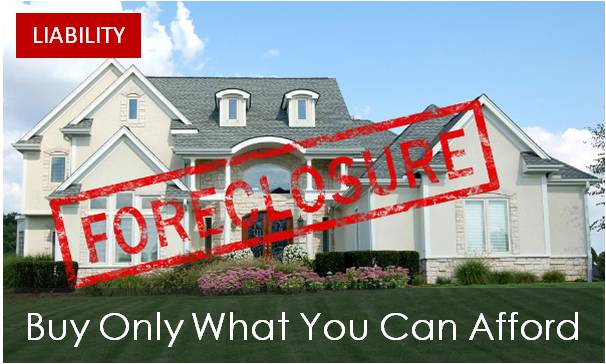While there isn’t necessarily a great debate raging, there are strong opinions on both sides of the question, “is a home an asset or a liability?”
There are those that believe the home they live in should be considered an asset. However, there is a school of thought, popularized by Robert Kiyosaki (author of Rich Dad Poor Dad), that says a home, particularly one carrying a mortgage, is a liability.
Before we go any further, let’s look at Merriam-Webster’s definition of these two key words:
as·set [ˈa-ˌset also -sət] noun
- A valuable person or thing
- Something that is owned by a person, company, etc.
li·a·bil·i·ty [ˌlī-ə-ˈbi-lə-tē] noun
- The state of being legally responsible for something
- The state of being liable for something
- Something (such as the payment of money) for which a person or business is legally responsible
Why Your House is an Investment, and an Asset, too [Monvator]
Looking at those two definitions, a case could be made for both. There is no doubt that many have sold their home at a great profit, supporting the idea that a house can be a valuable thing, an asset. On the other hand, when your home is carrying a mortgage, you are liable for the home and you are legally responsible for making payments. That would clearly make it a liability.
Something to consider. In the July 15 edition of Bottom Line Personal, a previous SavvyRecommendation, Diane Pearson (CFP, CDFA), notes, “Don’t be fooled by the recent real estate recovery – homes simply are not good investments. From 1890 through 2012, on average, home prices gained absolutely nothing in value after adjusting for inflation. Owning a home actually costs money – lots of it.”
I have adopted the belief that a home, a primary residence on which a mortgage is owed, is a liability and should not be viewed as an investment. I previously touched on this topic, at least tangentially, in a couple of other blog posts, The Value of my Retirement Portfolio and How Do You Stack Up.
5 Reasons Why I Don’t Know My Net Worth [Common Sense Millennial]
 I noted that when considering preparation for retirement – the focus of this blog – I like to look strictly at portfolio value (aka financial wealth) – which excludes things like home and car values – which are traditionally included in net worth, which is determined by subtracting the total dollar amount of all liabilities from the total value of all assets.
I noted that when considering preparation for retirement – the focus of this blog – I like to look strictly at portfolio value (aka financial wealth) – which excludes things like home and car values – which are traditionally included in net worth, which is determined by subtracting the total dollar amount of all liabilities from the total value of all assets.
My rationale? When you are ready to retire, who cares how much Kelley Blue Book believes your car is worth or how much Zillow believes your house is worth? Those numbers are largely irrelevant.
While having a significant net worth may sound impressive, it isn’t particularly helpful if the majority of that number is based on what you – or Zillow – believe your house is worth. In the 2007 time frame, prior to home prices crashing, there were a lot of people with inflated beliefs regarding their net worth, which was largely based on perceived home values.
There are lots of people out there that profit from selling the idea that a home is a valuable asset and you should do everything in your power to own one. That is not always the case and you shouldn’t.
Even if you do everything right (i.e. buy the right sized house, buy at a good price, get a fixed rate loan, etc.), you will be better served by viewing your home as a liability and not give it consideration when calculating your net worth (or at least understand the difference between net worth and financial wealth) and conducting retirement planning.
If you are interested in investing in real estate, consider purchasing a rental property or Real Estate Investment Trusts (REITs). With respect to retirement, and specifically generating retirement income, it is much more useful to focus on passive and portfolio income, not your home.

